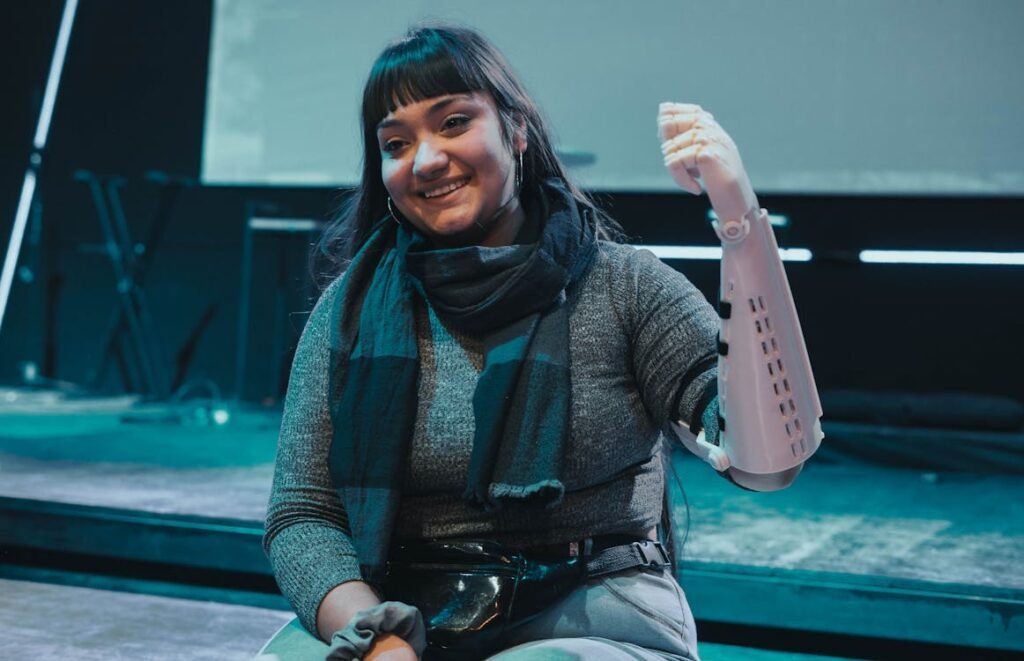Losing a limb is one of the most life-changing experiences a person can face. For many, it means adjusting to new challenges and finding ways to regain independence. But thanks to advancements in bionic technology, people around the world are not just adapting to life after limb loss—they are thriving.
Bionic limbs have transformed lives, offering users the ability to perform tasks they once thought were impossible. From professionals returning to their careers to athletes competing at the highest levels, bionic technology is proving that disability does not mean inability. Every success story is a testament to the power of innovation and human resilience.
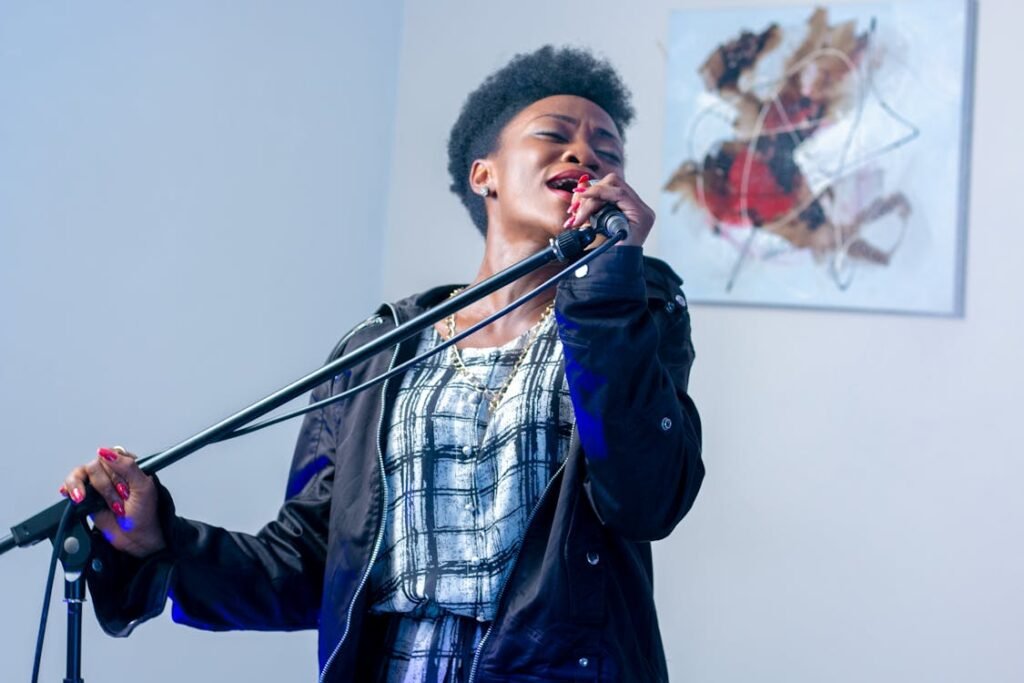
From Challenge to Triumph: The Power of Bionic Limbs
Behind every bionic prosthetic is a person who has overcome adversity. The transition from living with limb loss to using a bionic limb is not just about technology—it’s about determination, adaptability, and perseverance.
These stories highlight individuals who faced tremendous challenges but found new strength through their bionic prosthetics.
A Musician’s Return to the Stage
For many musicians, their hands are their most valuable asset. When Rahul, a professional guitarist from India, lost his right hand in an accident, he feared that his music career was over.
The thought of never playing again was devastating. After months of searching for a solution, he was introduced to a bionic hand that could respond to muscle signals in his residual limb.
His rehabilitation journey was not easy. Learning to control the prosthetic and adapt his playing technique took patience and persistence. But with time and practice, Rahul was able to modify his grip, adjust his strumming patterns, and once again create the music he loved.
Today, he performs at live concerts, proving that passion and technology can work hand in hand. His bionic prosthetic has not just restored his ability to play—it has restored his sense of self.
A Chef’s Journey Back to the Kitchen
Priya, a chef in Mumbai, lost her arm in a road accident. Cooking had always been her passion, and after the accident, she struggled with the idea of never working in a professional kitchen again.
The fast-paced environment, the need for precision, and the ability to handle delicate ingredients all seemed impossible with one hand.
After being fitted with a bionic prosthetic, Priya underwent rehabilitation to master her movements. Her new hand gave her the ability to chop vegetables, hold utensils, and even knead dough with controlled grip strength.
With the help of adaptive techniques and her unwavering determination, she returned to the kitchen. Today, she runs her own restaurant, inspiring others with her resilience and proving that no dream is out of reach.
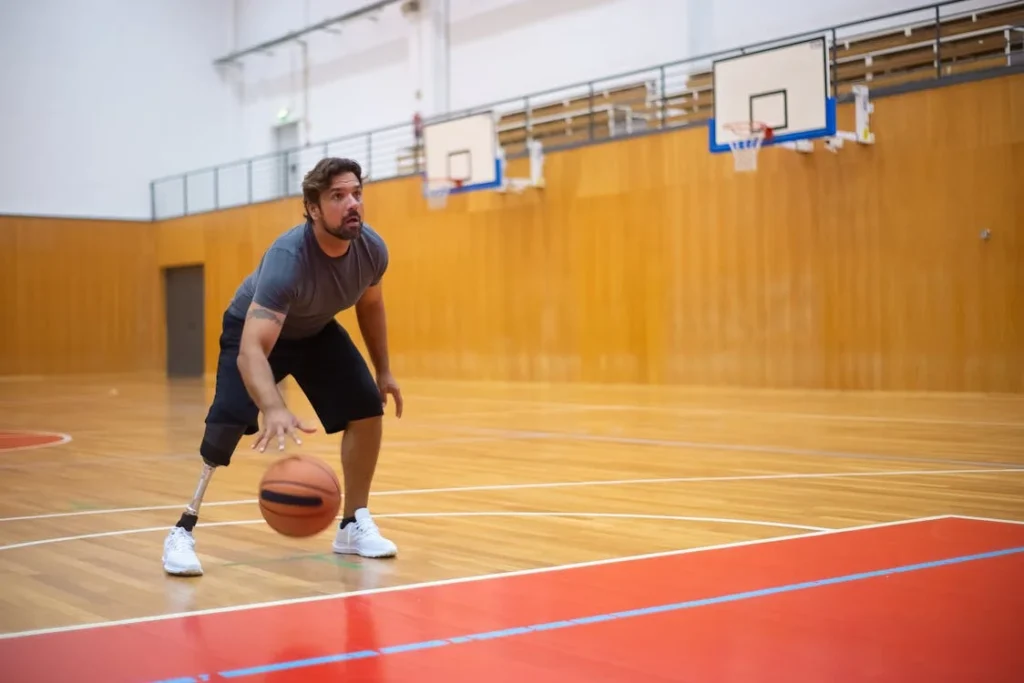
Breaking Barriers: Athletes and Bionic Prosthetics
Bionic limbs are not just helping people regain everyday function; they are also enabling athletes to push their physical limits. Competitive sports require precision, speed, and endurance, all of which can be challenging for individuals with limb loss.
However, advancements in bionic technology have made it possible for athletes to not only participate but also excel in their chosen sports. These success stories showcase the remarkable impact of bionic prosthetics in the world of athletics.
A Sprinter’s Comeback to the Track
Vikram was a national-level sprinter before a tragic accident took his right leg. For months, he struggled with the emotional toll of losing his identity as an athlete.
Walking itself felt like an insurmountable challenge, let alone running at a competitive level. When he was introduced to a bionic leg specifically designed for running, he saw a glimmer of hope.
The initial training phase was difficult. His body had to adjust to the new limb, and he had to rebuild his strength and coordination.
Unlike traditional prosthetics, his bionic leg had built-in sensors that adapted to his running style, providing real-time adjustments for stability and speed. Day by day, he improved, slowly regaining his stride.
With months of practice, Vikram returned to the track, this time competing against both able-bodied and prosthetic-using athletes. His performance was so remarkable that he qualified for national-level events again.
His story is a testament to how bionic prosthetics can restore not just mobility but also an athlete’s competitive edge.
A Boxer’s Journey Back to the Ring
Amit had been training as a boxer since childhood. He dedicated his life to the sport, but an industrial accident took away his right hand, forcing him to reconsider his dreams.
Boxing relies heavily on speed, balance, and controlled strikes, making it seem nearly impossible to continue at a professional level. He feared that the sport he loved would remain out of reach forever.
His life changed when he received a bionic hand designed for high-impact activities. Unlike passive prosthetics, this limb allowed him to throw controlled punches, grip training equipment, and defend effectively.
With adaptive training and hours of practice, he modified his stance and movements to accommodate his new hand.
Amit’s comeback was nothing short of inspiring. He returned to training, competing, and even mentoring others with limb loss who aspired to take up combat sports.
His journey showed that physical limitations do not define one’s potential. His bionic prosthetic not only helped him return to the ring but also gave him a new mission: to encourage and uplift others facing similar challenges.
Bionic prosthetics are opening doors in sports like never before. From running to boxing, these limbs are proving that advanced technology can push the limits of human ability.
Athletes using bionic limbs are redefining what it means to compete, showing the world that determination, coupled with innovation, can make anything possible.
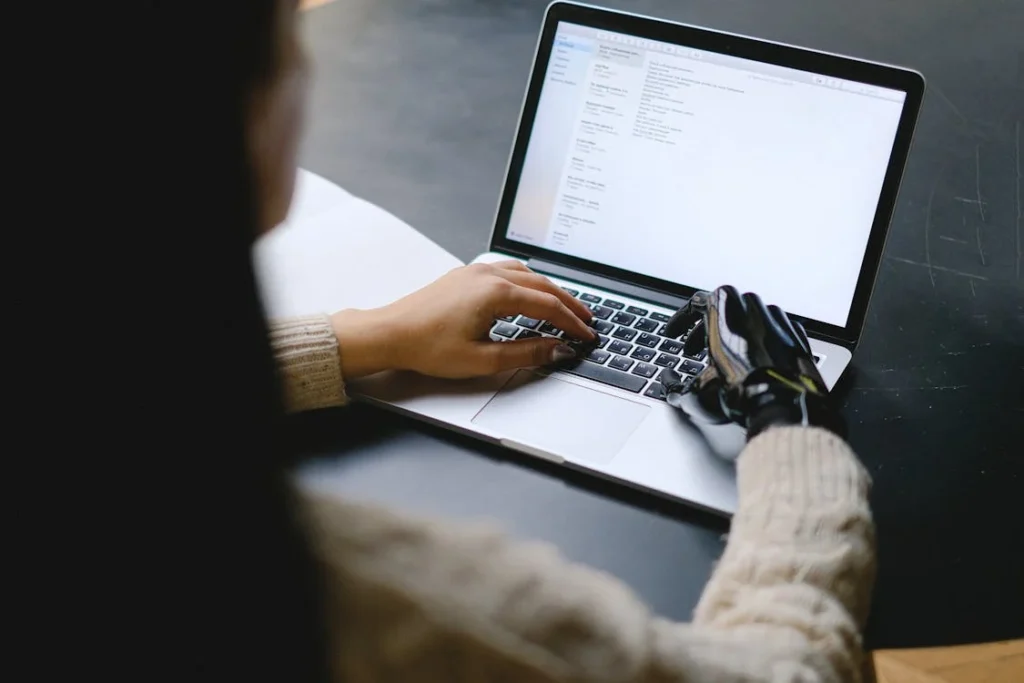
Returning to Work: Professionals Thriving with Bionic Limbs
For many individuals, the ability to return to work after losing a limb is a major milestone. Careers often require fine motor skills, physical endurance, and adaptability, all of which can be challenging with traditional prosthetics.
However, bionic limbs have given professionals a way to reclaim their independence and continue excelling in their fields. These stories highlight individuals who overcame obstacles and redefined their careers with the help of advanced prosthetic technology.
A Surgeon’s Steady Hands
Dr. Mehra was an experienced surgeon, respected in his field for his precision and skill. When he lost his left hand in an accident, he feared that his career was over. Surgery requires an extraordinary level of control, delicate hand movements, and endurance.
The idea of performing complex procedures with only one hand seemed impossible.
Determined to return to the operating room, he explored options and was fitted with a bionic prosthetic designed for fine motor tasks.
Unlike basic prosthetics, his new limb was capable of adjusting grip strength, holding surgical tools with precision, and providing stability for long procedures.
With months of training and adaptation, he mastered the use of his bionic hand, ensuring that his movements were just as steady as before.
Today, Dr. Mehra is back in surgery, performing complex procedures with the same confidence and accuracy that defined his career.
His success is proof that a bionic limb is not just a replacement but an enabler, allowing professionals to continue pursuing their passion despite physical setbacks.
An Engineer’s Return to Innovation
Arun had built his career as a mechanical engineer, working on high-tech projects that required him to assemble, repair, and design intricate components.
Losing his right hand in an industrial accident left him questioning whether he would ever work in his field again. His job required dexterity, problem-solving, and the ability to handle small tools with ease.
After receiving a bionic prosthetic equipped with adaptive grip technology, Arun began to train himself to work with it.
His prosthetic could sense the amount of pressure needed to hold different tools, allowing him to perform tasks that once seemed impossible. It took time, patience, and practice, but he slowly regained his confidence.
Arun returned to work, not just as an engineer but as an innovator who understood firsthand the power of technology in changing lives.
He began working on projects that focused on improving assistive devices, using his own experience to develop better solutions for others. His journey showed that physical limitations do not have to dictate a person’s ability to contribute to their field.
Bionic limbs are empowering professionals across various industries, allowing them to reclaim their roles and continue thriving.
Whether in medicine, engineering, or any other field, these advanced prosthetics are proving that career goals do not have to be abandoned after limb loss.
With the right technology and determination, individuals can continue excelling in their professions, redefining what is possible in the workplace.
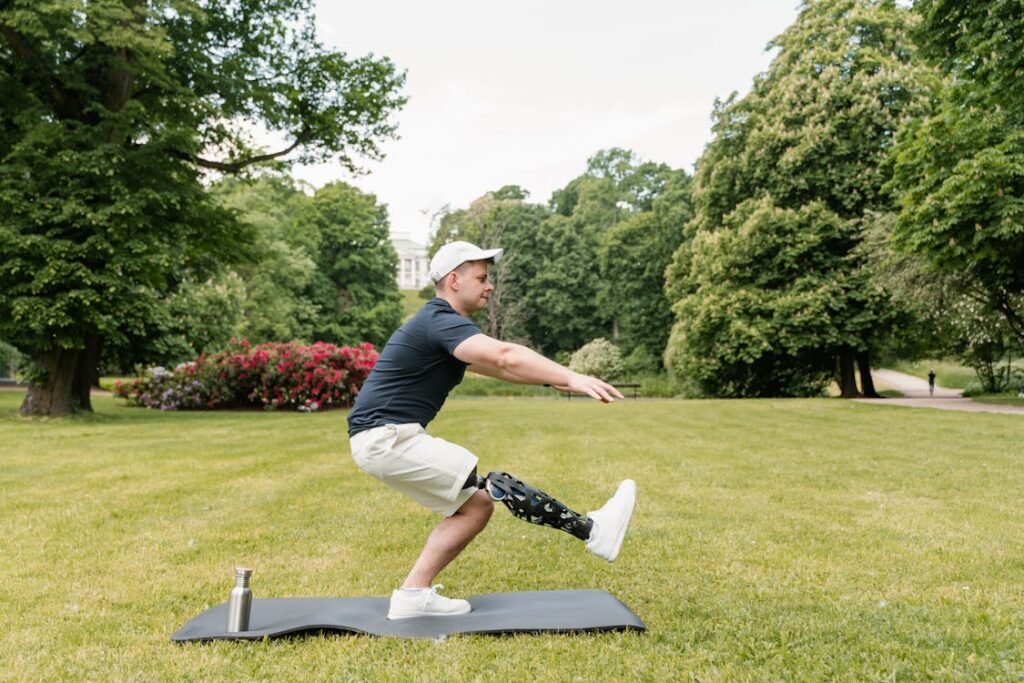
Everyday Independence: How Bionic Limbs Improve Daily Life
Beyond careers and athletics, the true measure of a prosthetic limb’s success is in the everyday moments that make up a person’s life.
Simple tasks like cooking, driving, or holding a child’s hand may seem routine, but for someone who has lost a limb, regaining these abilities is life-changing. Bionic prosthetics are enabling individuals to reclaim their independence, making daily life more seamless and fulfilling.
Regaining the Ability to Drive
For many, driving is more than just transportation; it represents freedom. Losing a limb can make operating a vehicle challenging, especially for those who require both hands or legs to drive.
When Ramesh lost his arm in an accident, he was determined to get back behind the wheel. He relied on public transportation for months, which made even simple trips difficult and time-consuming.
After being fitted with a bionic hand, he underwent specialized training to adapt to his new limb. The prosthetic allowed him to grip the steering wheel securely, operate controls with ease, and make quick adjustments while driving.
Within weeks, he was confidently back on the road, able to visit family, commute to work, and enjoy the independence he once took for granted.
His success showed that bionic technology is not just about movement—it is about restoring the freedom to live life without limitations.
Bringing Parenting Back to Normal
When Kavita lost her hand, her biggest concern was how it would affect her ability to care for her young daughter. Everyday parenting tasks like tying shoelaces, feeding, and holding hands while walking suddenly became difficult.
She worried that her child would grow up seeing her struggle, unable to provide the care and comfort that every mother wants to give.
After receiving a bionic prosthetic, she spent time learning how to use it for delicate tasks. The ability to gently hold small objects, grasp utensils, and support her daughter’s weight while walking gave her a renewed sense of confidence.
The first time she was able to braid her daughter’s hair again, she realized just how much her new limb had restored not just function, but emotional connection.
Bionic limbs are allowing parents, caregivers, and family members to continue fulfilling their roles without limitations. They provide the ability to interact, nurture, and support loved ones in ways that truly matter.
For individuals like Kavita, a bionic prosthetic is not just about regaining movement—it is about preserving the bond between parent and child, ensuring that no physical challenge stands in the way of love and care.
Confidence in Social Interactions
Beyond physical challenges, losing a limb can take an emotional toll. Many individuals struggle with confidence, especially in public settings.
The fear of being seen as different or incapable can lead to withdrawal from social interactions. Bionic prosthetics are helping change this by restoring not just function, but also self-esteem.
Arjun, a young professional, had always been outgoing and social. After an accident that led to the loss of his hand, he found himself hesitant to engage in conversations, avoiding situations where he might have to explain his condition.
When he was fitted with a sleek, modern bionic hand, he felt an immediate shift. Instead of seeing his limb loss as a limitation, he began seeing his prosthetic as a symbol of resilience and progress.
The confidence that comes with regaining control over everyday interactions is one of the most profound impacts of bionic technology.
People are no longer defined by what they have lost, but by what they can do. Whether it’s shaking hands, gesturing naturally while speaking, or simply feeling at ease in public spaces, bionic prosthetics are restoring a sense of normalcy and self-assurance.
Bionic limbs are not just transforming lives in workplaces and sports arenas; they are making everyday moments more fulfilling.
From driving to parenting to feeling comfortable in social settings, these advancements are proving that technology, when combined with human determination, can remove barriers and open doors to a full and independent life.
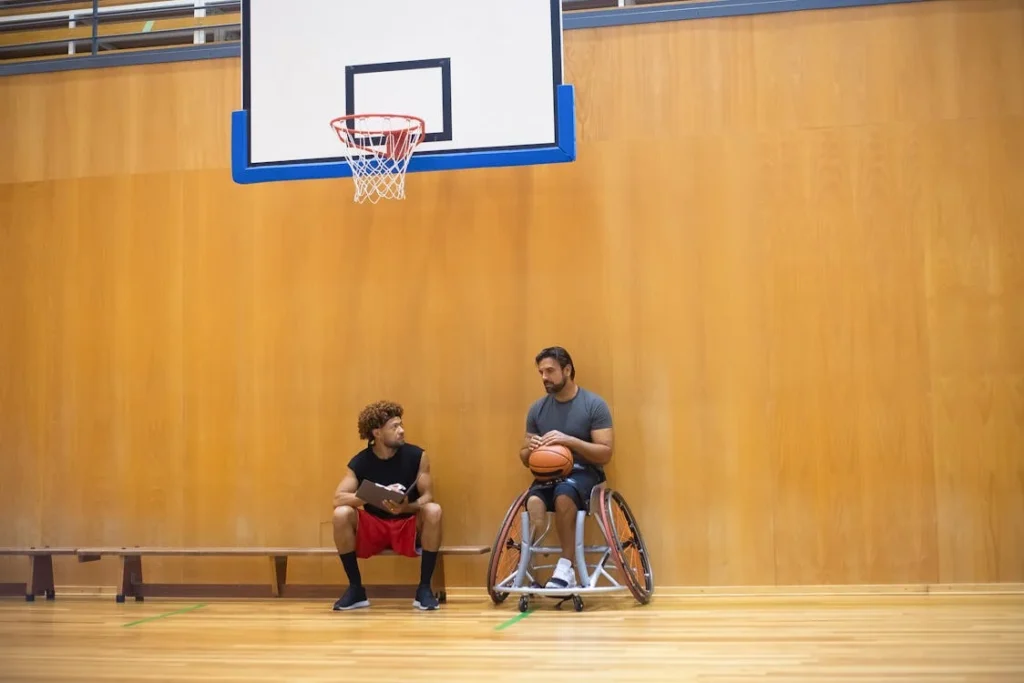
Overcoming Challenges: The Emotional and Mental Strength Behind Success
The journey to using a bionic limb is not just about technology or physical rehabilitation. It is also about emotional resilience, patience, and the ability to push past mental barriers.
Many individuals face self-doubt, frustration, and fear before they regain confidence in themselves. The process of adapting to a new limb is as much psychological as it is physical, requiring a shift in mindset and a willingness to embrace change.
The Mental Hurdle of Accepting a Bionic Limb
For many individuals, the initial reaction to losing a limb is grief. The idea of replacing a natural limb with an artificial one can feel overwhelming, and some struggle with the thought of whether they will ever feel whole again.
The transition from injury or illness to prosthetic use often involves a period of emotional adjustment, where users must come to terms with their new reality.
Rajiv, a businessman, experienced this emotional struggle firsthand. After losing his arm in an accident, he was hesitant to explore prosthetic options, fearing that no device could truly replace what he had lost.
Even after receiving a state-of-the-art bionic hand, he felt disconnected from it. It took weeks of practice and encouragement from his rehabilitation team before he started seeing the limb not as a replacement, but as a tool that could restore his independence.
Many users go through this phase, where frustration and doubt creep in. The process of learning to control a prosthetic limb can feel unnatural at first, leading some to believe they will never fully adjust.
However, with time, patience, and consistent training, the connection between the body and the bionic limb becomes stronger.
For Rajiv, the moment he was able to button his own shirt without help was the turning point. It was a small victory, but it reminded him that progress was possible, one step at a time.
Rehabilitation and the Importance of Support Systems
Learning to use a bionic limb requires effort, and having a strong support system makes all the difference. Many individuals rely on the guidance of physical therapists, family members, and other prosthetic users who have walked the same path.
Encouragement, shared experiences, and expert training help users build confidence in their new limb, ensuring that they do not feel alone in their journey.
Meera, a young woman who lost her leg due to illness, credits her successful adaptation to the people around her. Her physical therapist guided her through exercises that improved her balance and coordination.
Her family motivated her to stay active and practice walking even on difficult days. She also connected with a community of prosthetic users who shared their own experiences, giving her reassurance that she was not alone in her struggles.
These factors played a critical role in helping her regain both mobility and self-confidence.
Bionic technology provides the tools for independence, but emotional resilience is what turns those tools into real success.
The individuals who thrive with bionic limbs are those who embrace the learning process, allow themselves to make mistakes, and celebrate small victories along the way.
They understand that progress does not happen overnight, but with perseverance, it becomes possible to do things that once seemed out of reach.
The transformation that takes place is not just physical but deeply personal. The ability to move freely, engage with others, and perform everyday tasks without limitations is empowering.
It brings a renewed sense of purpose, proving that with the right mindset, anything is possible. Bionic prosthetics are more than just pieces of technology; they are symbols of resilience, determination, and the strength of the human spirit.
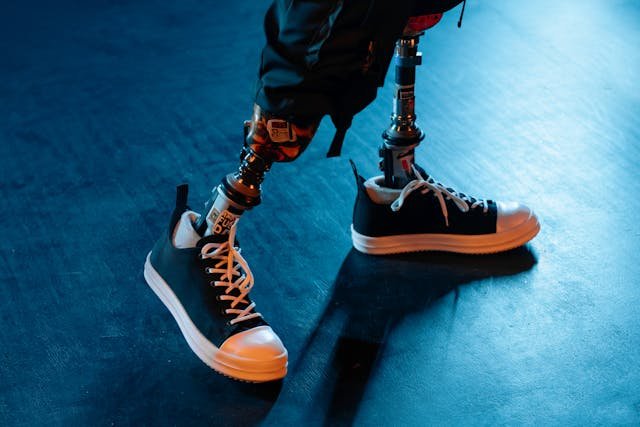
How Bionic Technology is Shaping the Future of Independence
Bionic limbs have come a long way from being just functional replacements for lost limbs. Today, they are revolutionizing how individuals experience life, giving them a renewed sense of independence and freedom.
These prosthetics are no longer just about movement; they are about improving quality of life, allowing people to engage in daily activities with confidence and ease.
The success stories of individuals thriving with bionic limbs prove that technology is not just solving physical limitations but also enabling people to redefine what is possible.
The Role of Advanced Sensory Feedback
One of the most significant advancements in bionic prosthetics is the development of sensory feedback systems. In the past, prosthetic limbs functioned mechanically, without the ability to provide users with a sense of touch.
This lack of sensory connection made it difficult to gauge pressure, adjust grip strength, or perform delicate tasks. With modern advancements, bionic limbs are now equipped with technology that allows users to feel sensations in their prosthetic hand or leg.
For many individuals, regaining the ability to feel through their prosthetic limb is a game-changer. It restores a sense of natural movement and allows for more precise interactions with objects. Aarav, a software engineer, experienced this transformation firsthand.
After receiving a bionic hand with sensory feedback, he was able to type on a keyboard, handle fragile objects, and even detect temperature changes. These seemingly simple functions restored his confidence, making his daily routine much easier and more efficient.
Sensory feedback is not just about functionality; it is also about emotional connection. The ability to feel touch again creates a stronger bond between the user and their prosthetic limb.
This connection is what makes the prosthetic feel like an extension of their body rather than just an external device.
The Impact of AI and Machine Learning
Bionic limbs are also becoming smarter, thanks to artificial intelligence and machine learning. These technologies allow prosthetic limbs to adapt to the user’s movement patterns, improving responsiveness and making control more intuitive.
Unlike traditional prosthetics, which require manual adjustments, AI-powered limbs learn from real-life usage and refine their functionality over time.
Rehabilitation and training with a bionic limb are much easier when the prosthetic is capable of predicting and responding to natural movements.
Instead of relying solely on muscle contractions to trigger movement, some advanced prosthetics can anticipate what the user wants to do based on previous actions. This reduces the effort needed to perform tasks and creates a smoother, more natural experience.
Ayaan, a former athlete, struggled with early prosthetics that felt rigid and unresponsive. When he received an AI-powered bionic leg, he immediately noticed a difference.
The limb adapted to his walking style, adjusted for changes in terrain, and provided stability without requiring conscious effort.
His experience highlighted how AI-driven prosthetics are not just restoring movement but also making it easier and more intuitive for users to engage in their daily activities.
A Future Where Bionic Limbs Become the Norm
With continuous advancements in bionic technology, the gap between natural and artificial limbs is narrowing. The future of prosthetics lies in making them more accessible, affordable, and personalized.
As more individuals experience the benefits of bionic limbs, the focus is shifting from simply restoring lost function to enhancing overall mobility and independence.
The real success of bionic prosthetics is not in the technology itself, but in the lives they transform. Each individual who regains the ability to work, engage in sports, or care for their family represents the power of innovation.
The future is one where bionic limbs become an effortless extension of the body, allowing users to move, feel, and live without restrictions.
Conclusion
The success stories of individuals thriving with bionic limbs prove that limb loss is no longer a barrier to independence, careers, or personal goals. From musicians and athletes to professionals and parents, bionic prosthetics are transforming lives by restoring mobility, confidence, and the ability to engage fully in everyday activities. These advanced limbs are not just replacements but powerful tools that empower people to redefine their limits.
With innovations in sensory feedback, AI-driven adaptability, and enhanced functionality, bionic technology is creating a future where prosthetic limbs feel more natural and intuitive than ever before. Each new advancement brings us closer to a world where individuals with bionic limbs experience life without limitations.
At Robobionics, we are dedicated to making this future accessible to everyone. Whether you are exploring prosthetic options for the first time or looking for an upgrade, we are here to help. Contact us today to learn how our cutting-edge bionic solutions can help you regain independence and thrive.



